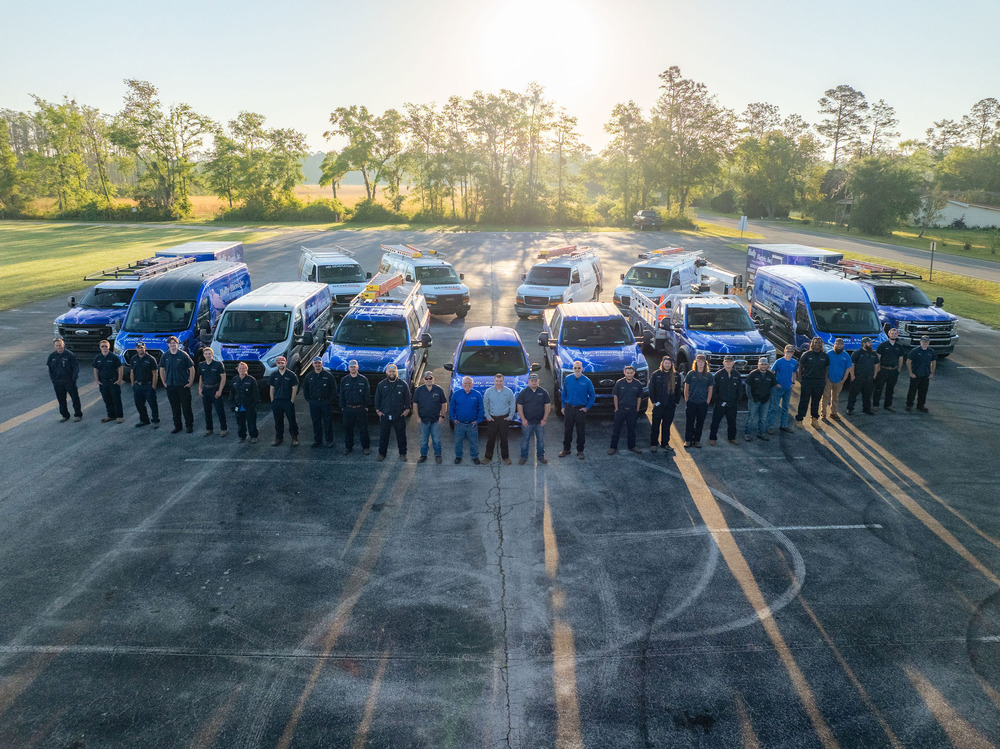If you’re looking for an electrician, you may see language like “licensed electrician” or “in-house electrician licenses.” While that may sound good, what do these terms mean? Is a license required when you need someone to fix an outlet? What goes into obtaining a license? Today, we’ll help you answer these questions and understand the importance of an electrician license.
What Does an Electrician License Mean?
Boiled down to the basics, an electrician license just means that a region (whether that be a city, county, or state) has given legal permission to the holder to perform electrical work in that area. Licenses are state-bound, so someone with an electrician license in Georgia would not be a licensed electrician in Florida. These licenses ensure that your electrician has gone through the necessary requirements to legally perform their work.
Do Electricians Need a License?
Yes, all electricians require a license. Without a license, any work done would be performed illegally. While this does not hold legal consequences for you as the customer, it does mean the work done on your house may not match the safety standards set in place by your state—which could become a dangerous situation. If you suspect an electrician is doing unlicensed work, you can report them to the Unlicensed Contractor Hotline.
Florida’s License Requirements
For electricians in Florida to earn a license, there are several steps they have to go through. These requirements help ensure that your electrician has gotten the proper education, training, and testing, so you know that your home is in good, qualified hands.
1. Classes & Education
Before an aspiring electrician can begin work, they must first obtain a certain level of education and classes. Most licenses require at least a high school diploma or GED, and then the trainee must take some continuing education courses during their apprenticeship. In order to complete this requirement, many electricians may choose to enroll in a trade school to streamline the process, but it’s not required if the student is motivated to obtain the necessary education.
2. Work Experience
An apprenticeship or some other type of work experience is required in order to obtain an electrician license in Florida. An apprenticeship lasts about four years, but other work experience may also be considered during the licensing process, such as other technical trade experience, service in the military, or some combination of experience that equals six years. During an apprenticeship, your electrician will learn all the hands-on skills required for their future career, including safety procedures and national and local electrical codes.
3. Pass the Tests
There are several tests an electrician can take to advance their career and license. The first one after an apprenticeship is the Journeyman Exam. This test covers all the concepts an electrician should have learned during their class time and apprenticeship.
Upon passing, they will become a licensed electrician; however, if they wish to advance their career and take more exams, they’ll need to continue their work experience and continuing education credits. More graduated licenses include the Master Electrician License and the Electrical Contractor License.
How to Check Your Electrician’s License
In order to ensure your home’s safety during electrical work, you’ll want to confirm your electrician is licensed in your region. Most electricians will list their licenses on their website or at the very least confirm them during any consultation. However, if you want to be absolutely certain of their licensing status, Florida has a verification portal that allows you to check their license status based on their name, license number, location, or license type.
Benefits of In-House Licensed Electricians
During your search for an electrician, you may notice some companies state they have their licenses in-house. If you’re not sure what that means, “holding licenses in-house” means the electrical company is not contracting out their work and has licensed electricians directly on their team.
The benefit of this is a consistent standard across a company—rather than contracting it out to someone they don’t know, an in-house electrician will follow the standard of care set by the company, on top of any standards required from their license. Essentially, it means an improved customer experience and expert advice directly from the source.
Holly Electric Is Licensed & Insured for Top Quality
At Holly Electric, we aim to provide the highest level of care to our customers. We do hold all our licenses in-house, so you can feel confident that everyone you work with is dedicated to the customer experience that you can only find at Holly Electric—transparency, honesty, and excellence. We are also insured to protect both our people and your home during our work. Keep the lights on all year round, and work with Holly Electric for your electrical and generator need

